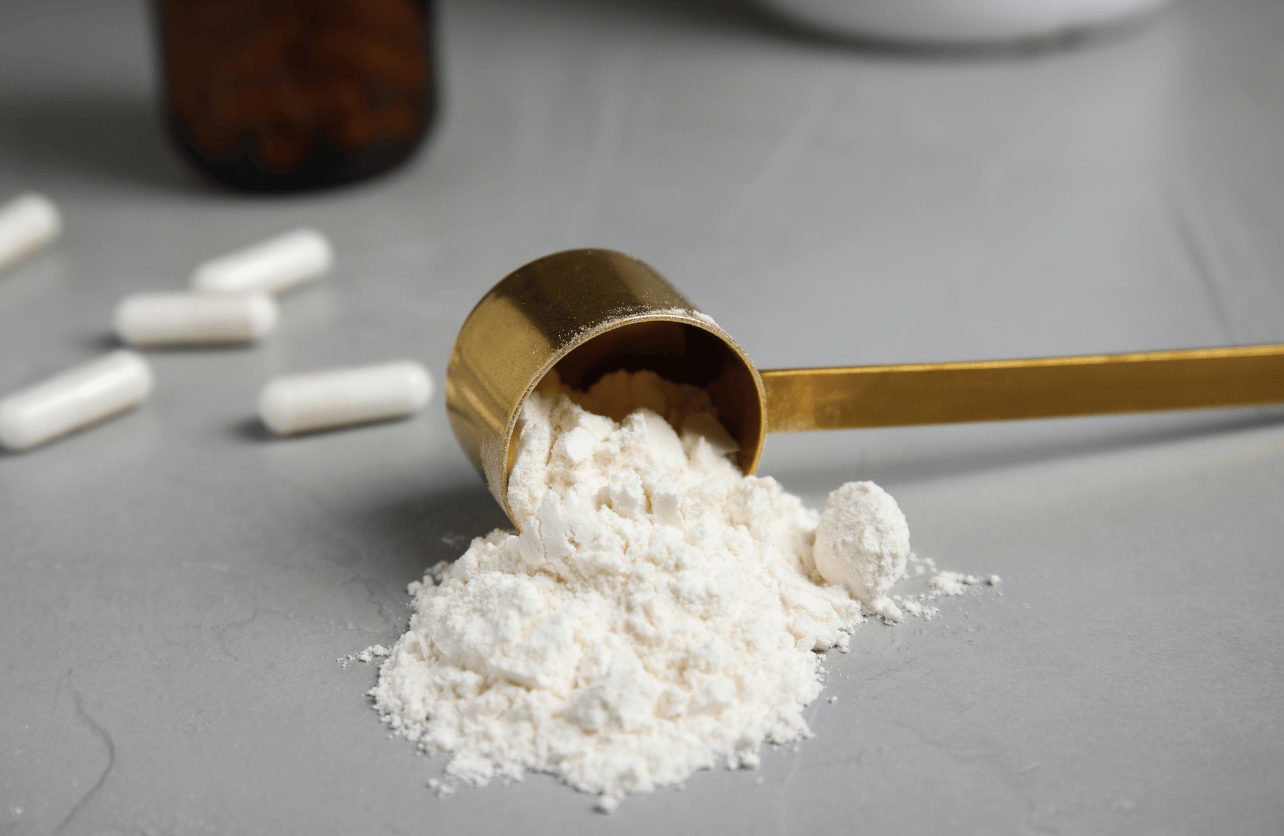How Long Does Creatine Stay in Your System? A Full Breakdown

Creatine is one of the most researched and widely used supplements in the fitness world. It’s praised for its ability to enhance strength, support muscle growth, and improve recovery. But once you stop taking it—or if you’re curious about how long it sticks around in your body—you might wonder: how long does creatine actually stay in your system?
To answer that, we have to look at two things: how creatine is processed by the body and where it’s stored. The full picture includes your bloodstream, your muscles, and your kidneys.
Creatine Basics: What Happens After You Take It?
When you ingest creatine, it’s absorbed through the small intestine and enters your bloodstream. From there, your body stores most of it in your skeletal muscle, where it serves as a phosphate donor for ATP—the energy currency your muscles use during high-intensity activity.
Some creatine remains in your bloodstream temporarily, and a small percentage is continuously converted into creatinine, a waste product that’s excreted through the urine.
So even though you might feel the effects of creatine quickly (especially after a loading phase), it doesn’t stay in every part of your system for the same length of time.
1. How Long Creatine Stays in the Bloodstream
The elimination half-life of creatine in the bloodstream is approximately three hours. That means half of the creatine circulating in your blood is metabolized or excreted after that time.
Within 24 hours, nearly all creatine not absorbed into muscle tissue is cleared from your blood and expelled in your urine. This is why blood levels of creatine drop off quickly if you stop supplementation.
However, that doesn’t mean its effects disappear overnight—because most of the magic happens inside your muscle cells, not your blood.
2. How Long Creatine Stays in Muscle Tissue
Once creatine is stored in your muscles, it’s a different story. Regular supplementation—especially at maintenance doses of 3–5 grams per day—leads to saturated muscle stores over time.
After you stop supplementing, your body gradually uses this stored creatine for energy, and your muscle levels slowly return to baseline. Most studies estimate that this process takes about 4 to 6 weeks. In some cases, it may take a bit longer depending on individual factors like:
Your natural baseline (some people produce or store more creatine naturally)
How long and how much creatine you’ve been supplementing
Activity level, since intense training uses up creatine faster
The takeaway? Even though blood levels drop quickly, muscle creatine stays elevated for weeks after you stop supplementing.
3. What Affects How Long Creatine Stays in Your System?
Several personal and lifestyle factors can influence how long creatine remains active in your body:
Dosage and duration of use: Higher doses or longer periods of supplementation mean greater accumulation and slower depletion.
Muscle mass: People with more muscle can store more creatine, which extends the time it takes to return to baseline.
Metabolic rate: A faster metabolism may clear creatine more quickly, especially from the bloodstream.
Kidney function: Because the kidneys excrete creatinine, those with impaired kidney function may retain creatine and its byproducts longer.
Hydration: Staying well-hydrated supports kidney function and helps remove creatinine efficiently.
4. Why It Matters for Supplementation Strategy
Understanding how long creatine stays in your system can help you make smarter decisions about how and when to use it.
If you’re cycling creatine, knowing it stays in your muscles for several weeks means you can take breaks without immediately losing all its benefits.
If you’re preparing for a blood or urine test, creatine itself is unlikely to be flagged, but elevated creatinine levels (its byproduct) can raise questions, particularly in medical exams.
If you’ve stopped taking creatine, don’t expect to lose your strength or muscle gains right away—your stores will remain high for a few more weeks.
5. Does Creatine Build Up in the Body?
Not in a harmful way for healthy individuals. Once your muscles are saturated, any excess creatine from supplementation is converted to creatinine and excreted. There’s no evidence of toxic buildup in people with normal kidney function.
That said, individuals with existing kidney conditions should consult a healthcare provider before using creatine, as elevated creatinine levels may interfere with test results or add stress to the kidneys.
Summing Up
Creatine leaves your bloodstream relatively quickly—within a day—but sticks around in your muscles for 4 to 6 weeks after you stop taking it. How long it lingers depends on your dosage, activity level, body composition, and kidney function.
For most people, creatine is safe, effective, and easy to manage. Just remember that while its blood levels fall fast, its real power is in your muscle stores—and those take time to build up and time to deplete. Whether you’re cycling off or just getting started, it helps to understand how creatine moves through your body so you can make the most of its benefits.
Building a Stronger You
Supplement Institute is the fruit of extensive online publishing experience, spanning the breadth of SEO strategies to the nuances of paid advertisements. Our journey, marked by significant achievements and learning moments, inspires our core mission: to empower our readers with an abundance of information. By sharing insights and key learnings, we aim to provide you with the knowledge needed to navigate the complex world of supplements, helping you make well-informed decisions for your health and well-being. Welcome to Supplement Institute, where information is your greatest supplement.